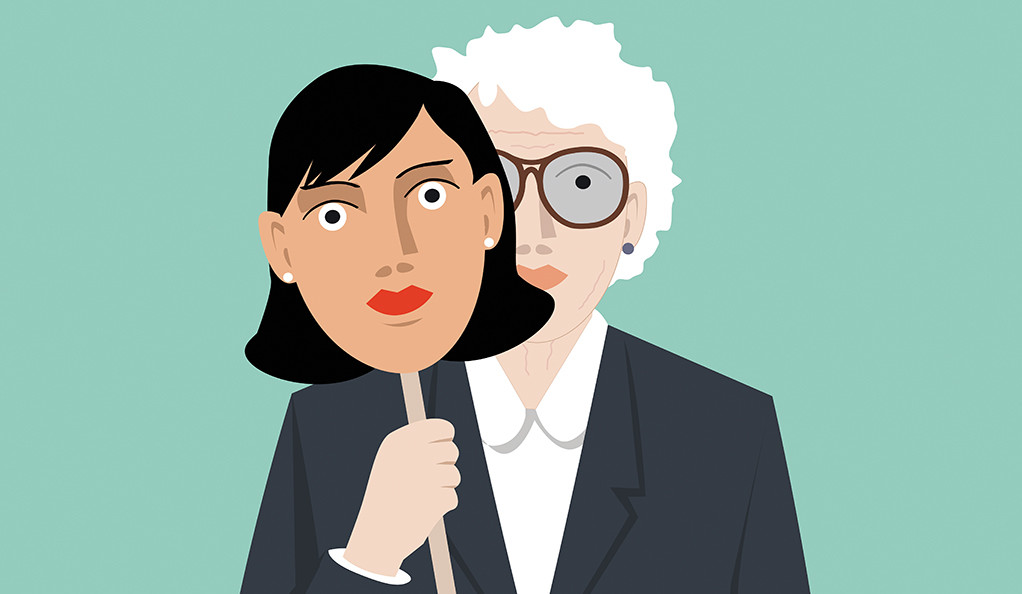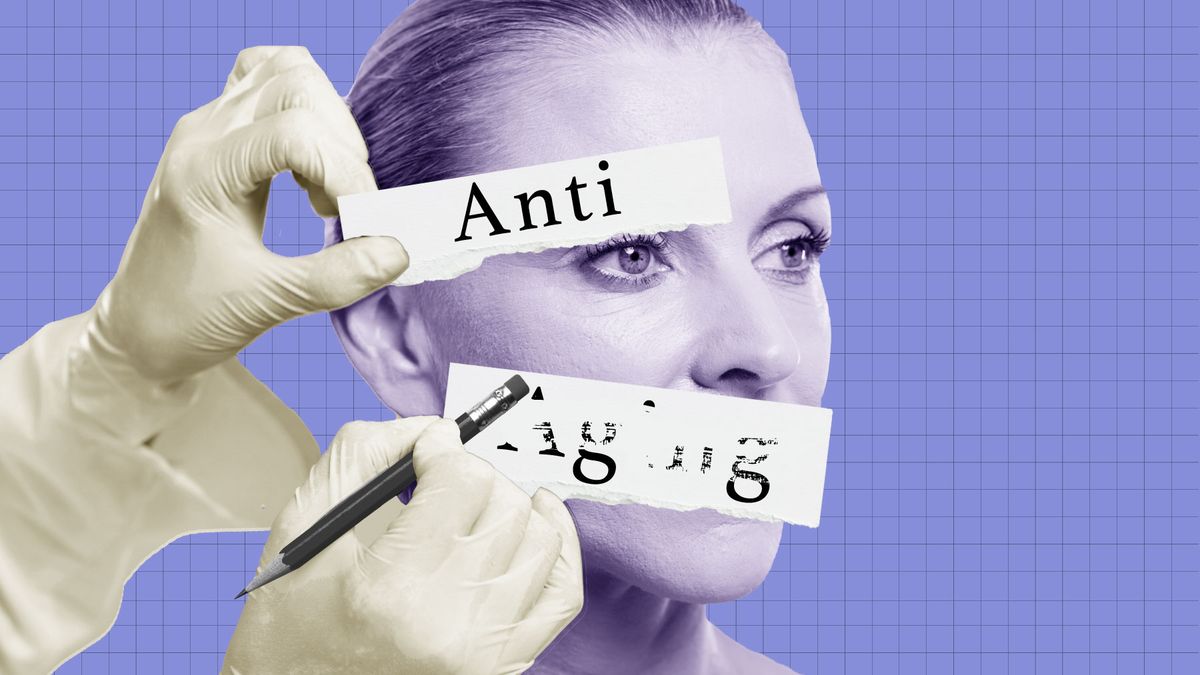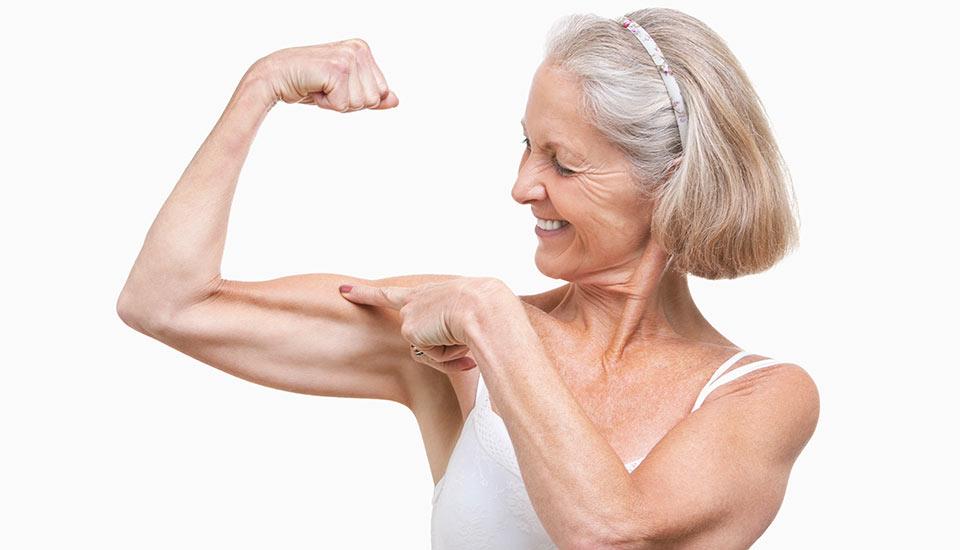My Darlings, please enjoy this wonderful article by Paula Marie Usrey. Paula founded Boomer Best U to promote positive aging and to fight age discrimination. In this article, she speaks about women aging with pride! I do hope you enjoy.

Pic: Yale News
I didn’t claim my age until after I had entered my sixties. Before that time, I did everything I could to hide my age from co-workers and even some of my younger friends. As I shared with some of you in my September 2019 Honey Good post, I’d even considered plastic surgery to conceal my age. To be completely honest, I had made an appointment with a plastic surgeon and was seriously considering the idea of taking on significant debt to turn back the clock a few years.
On the way home from my appointment with the plastic surgeon, I thought more about why I felt the need to keep hiding my age. In my situation, I wasn’t likely to lose my teaching position because of my age. Instead, I was losing my self-esteem. Increasingly, I felt more invisible and less valuable.
Anti-Aging Messages Hit Women the Hardest
In a youth-centric culture, we are constantly bombarded with messages that tell us young is desirable and old is undesirable. For women, the message is even more pointed. Research suggests that women are valued more for their looks than are men. No wonder we feel pressured to find ways to restore our youthful looks. Wanting to look our best as we age is one thing, but accepting the belief that aging is bad or it makes us less worthy is something different.

Pic via Vox
One of the challenges that most of us will face is that as we constantly hear stereotypical messages about aging, we tend to internalize these messages. As we internalize negative views of aging, it can have long term effects on our health and well-being. In a 2016 health journalism article, Liz Seegert explained that age stereotyping (ageism) can influence our desire to maintain a healthy lifestyle, it can increase our stress levels, and also lead to a shorter lifespan.
In general, women are more easily dismissed than men. Most of us have recognized sexism when we have seen it or experienced it. For example, some medical professionals tend to discount female complaints more than those of men as reported in a Harvard Medical School article. When a woman ages, she faces the potential of not only being discounted for being female but for being old. In her book, Elderhood, geriatrician, Louise Aronson discusses how much ageism really exists in the medical field.
She Refused to Accept Stereotypical Treatment
‘Carol’ had always been very active. A few months ago, Carol became ill. After a few weeks, she made an appointment with her doctor. The doctor summarily dismissed her complaint and said her problem was related to getting old. The doctor’s nurse gave her a hug and then spoke to her as though she was a child saying something like, “Oh sweetie, it’s just life. You’ll be fine.”
If Carol had accepted the hasty diagnosis and child-like treatment, she could have easily become discouraged and accept that she was just getting old and probably had wasted her doctor’s time.
Fortunately for Carol, she recognized ageism and immediately got a second opinion. The next doctor she saw asked about her medications and then made some appropriate adjustments. Now she is back to her active lifestyle and is living each day to the fullest.

Pic via GMA Network
We Have the Right to Feel Proud of Our Age
When we embrace a positive view of aging, we are more likely to enjoy our lives to the fullest. However, we don’t live in a vacuum and can easily be influenced by cultural attitudes about aging. That is why it is important for us to recognize ageist attitudes and refuse to internalize those negative views. Certainly, it helps to examine our own attitudes about aging. I love what speaker and author, Ashton Applewhite said: “We must be proud of our age.”
After I decided against plastic surgery to turn back the clock, I decided that I would start taking pride in my age. I started bragging about my age whenever I got a chance. After all, I have lived quite a few years and have earned the right to honor those years.
Creating Opportunities to Change the Narrative about Aging
Today, I’m an advocate for positive aging. Interestingly, when I give presentations or conduct workshops on positive aging and ageism, other women nod and often share some of their own experiences. However, men have tended to respond differently.
One time when I gave examples of ‘elderspeak’ or speaking to older people as though we were children, a man responded by saying, “I’d love it if younger women would call me ‘sweetie or Honey,’ and I sure wouldn’t mind if they hugged me.” Trust me, some of the women in earshot of these remarks were happy to explain why they did mind when receiving such treatment. These women had identified a teachable moment and were taking advantage of it.
Teachable Moments
Instead of staying silent when others make ageist remarks, I have started looking at some of those encounters as “teachable moments.” A couple of months ago, a grocery clerk handed me a sack that contained two cans of vegetables and a half-gallon of milk. The clerk looked at me and said, loudly, “Are you ready for this, sweetie? It’s heavy.” I looked at her and looked at the bag. I paused and said, “It must not be too heavy.” Then I smiled and told her that since I came into the store regularly, she could call me Paula. At that point, I became a person with a name rather than a generic older woman of sixty-eight. She now calls me by name. I use her name as well.
I also look for opportunities to interact with people of all ages. Certainly, when I was still teaching at a community college, it was easier to connect with younger people. Now that I have retired, I have to make an effort to interact with younger people. According to a study conducted by Cornell University, interacting with people of different ages and sharing our experiences is one way we can help change the narrative about aging.
What are your experiences with aging and ageism?
As well, what do you find helps give you a sense of pride in the years that you’ve lived?
What kinds of things do you do to refute ageism so that it doesn’t become internalized? I’d love to hear what you think.
 Paula Marie Usrey founded Boomer Best U to help promote positive aging and fight age discrimination. She has also given a TEDx presentation on how to live your best life at any age. Paula recently retired as an Associate Professor of Communication from Umpqua Community College.
Paula Marie Usrey founded Boomer Best U to help promote positive aging and fight age discrimination. She has also given a TEDx presentation on how to live your best life at any age. Paula recently retired as an Associate Professor of Communication from Umpqua Community College.
+ show Comments
- Hide Comments
add a comment